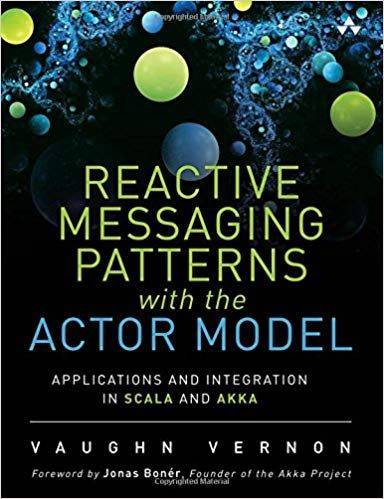
Download Reactive Messaging Patterns with the Actor Model: Applications and Integration in Scala and Akka PDF EPUB
Author: Author
Pages: 480
Size: 2.595,06 Kb
Publication Date: August 17,2015
Category: Software Design & Engineering
UTILIZE THE ACTOR MODEL TO BUILD SIMPLER SYSTEMS WITH BETTER Overall performance AND SCALABILITY
Enterprise software advancement has been a lot more hard and failure-prone than it requires to be. effectively construct, path, and transform communications; Reactive Messaging Patterns with the Actor Model shows how the reactive enterprise approach, Actor model, Scala, and Akka can help you overcome previous limits of performance and scalability, and skillfully address even the most challenging nonfunctional requirements.“> �
Reflecting his very own cutting-edge work, Vernon displays architects and programmers how exactly to translate the longtime guarantees of Actor model into useful reality. Initial, he introduces the tenets of reactive software program, and shows the way the message-powered Actor model addresses most of them–to be able to build systems that are even more responsive, resilient, and elastic. Next, he presents a useful Scala bootstrap tutorial, an intensive launch to Akka and Akka Cluster, and a complete chapter on maximizing functionality and scalability with Scala and Akka.
Building on this foundation, you’ll learn to apply enterprise application and integration patterns to establish message channels and endpoints; Now, veteran software engineer and author Vaughn Vernon offers an easier and more rewarding method to succeeding with Actor model.“>� gong3deng gong0deng Find unique online training on Domain-Driven Design, Scala, Akka, and other software craftsmanship topics using the for(comprehension) website at forcomprehension.”> �
Coverage Contains
- How reactive architecture replaces complexity with simpleness throughout the primary, middle, and edges
- The features of actors and actor systems, and how Akka makes them better
- Building systems that perform at level using one or many processing nodes
- Establishing channel mechanisms, and choosing suitable channels for every application and integration problem
- Constructing communications to obviously convey a sender’s intent in interacting with a receiver
- Implementing an activity Supervisor for your Domain-Driven Styles
- Decoupling a message’s supply and destination, and integrating suitable business logic into its router
- Understanding the transformations a note may encounter in applications and integrations
- Applying persistent actors using Event Sourcing and reactive sights using CQRS
�
�
�